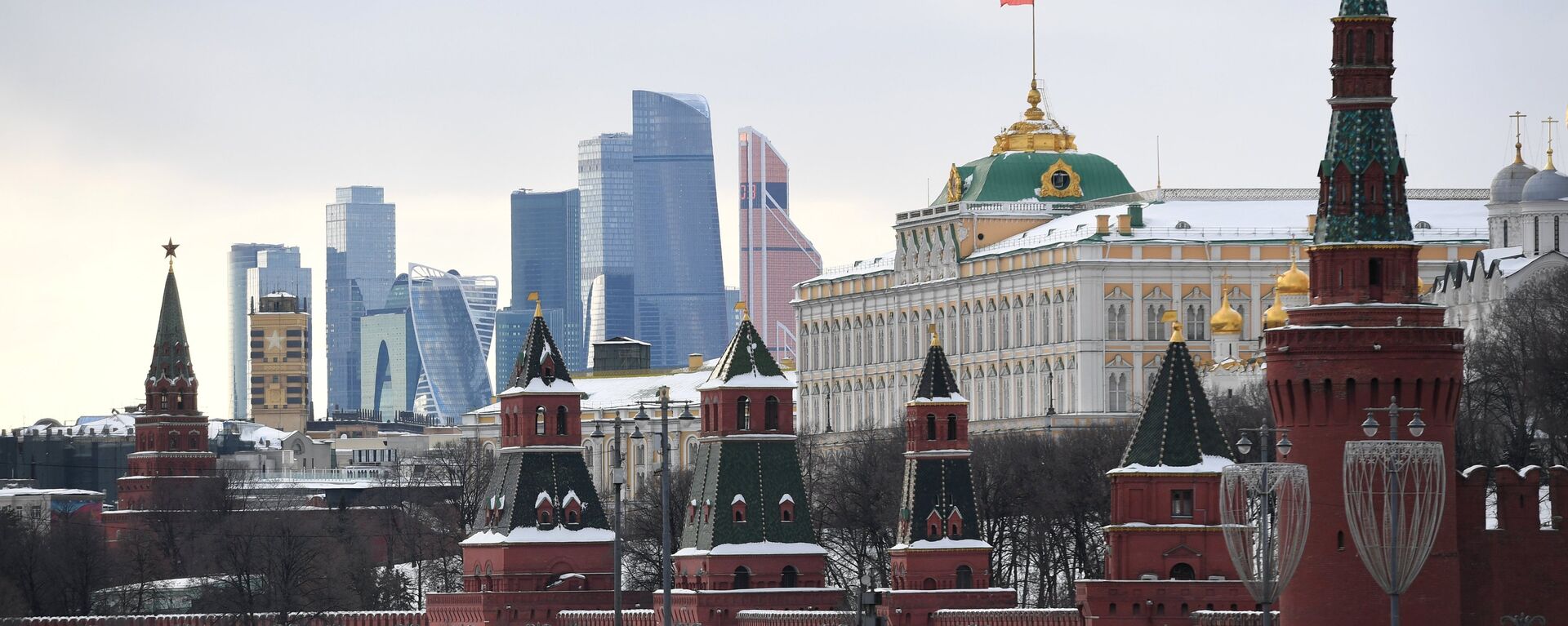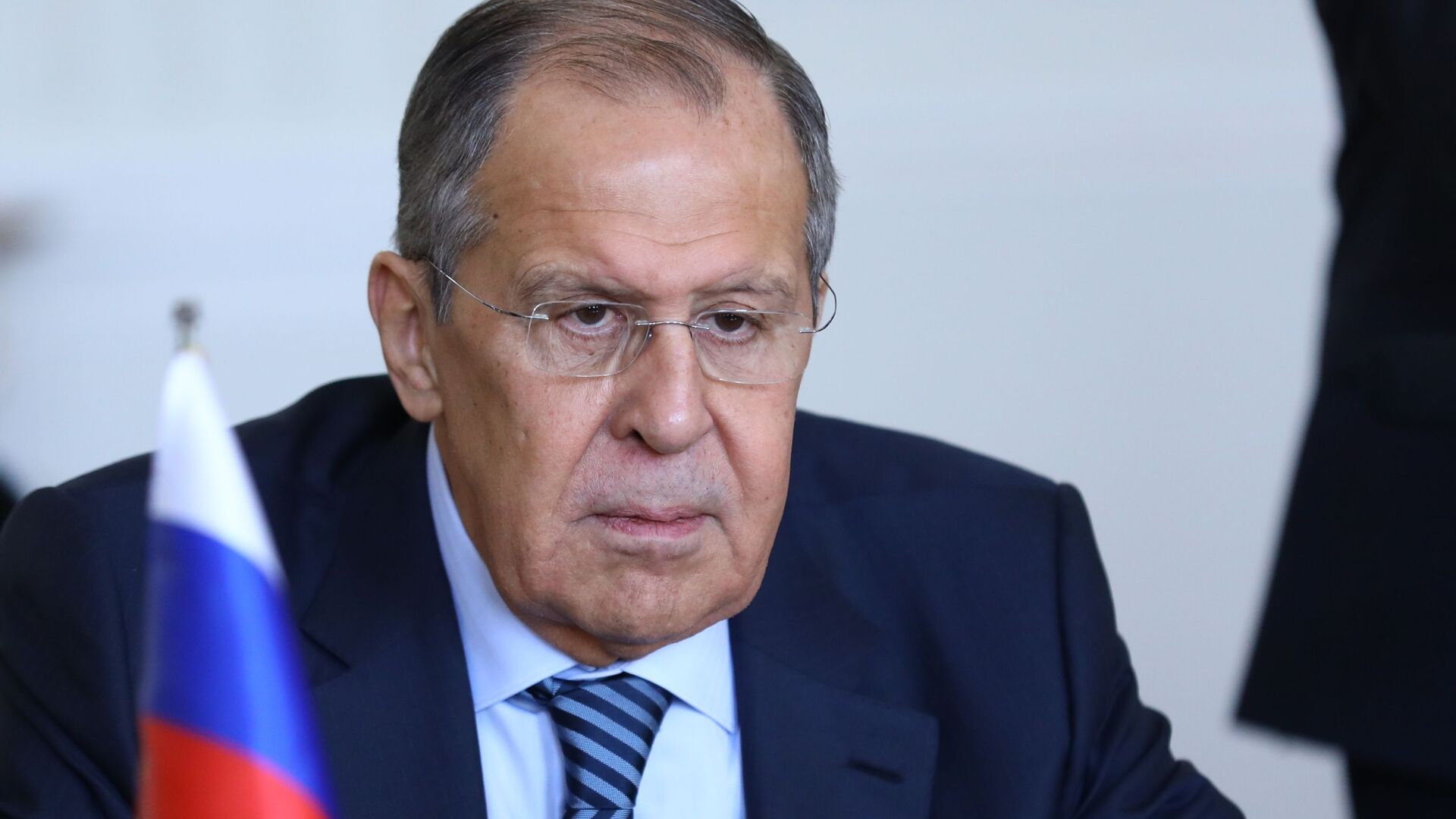https://sputnikglobe.com/20211221/russia-considers-natos-further-expansion-to-its-borders-a-red-line-foreign-minister-says-1091702304.html
Russia Considers NATO’s Further Expansion to Its Borders a ‘Red Line’, Foreign Minister Says
Russia Considers NATO’s Further Expansion to Its Borders a ‘Red Line’, Foreign Minister Says
Sputnik International
Any further movement of NATO toward Russian borders would be a “red line” in dialogue with Moscow, Russian Foreign Minister Sergey Lavrov said on Tuesday.
2021-12-21T18:59+0000
2021-12-21T18:59+0000
2021-12-21T18:59+0000
sergey lavrov
us
russia
ukraine
tensions
nato
https://cdn1.img.sputnikglobe.com/img/07e5/04/10/1082651169_0:161:3069:1887_1920x0_80_0_0_4d43a26e145a6cf5f613d9bb0f9e2770.jpg
“Our position on NATO expansion is well known - it will be a red line if the alliance continues to move closer to the borders of the Russian Federation,” Lavrov stated at a joint press conference after a meeting with the Foreign Minister of Bosnia and Herzegovina, Bisera Turkovic.Asked if he discussed on Monday with the top diplomats of Abkhazia and South Ossetia, Inal Ardzinba and Dmitrii Medoev, a response to the possibility of Georgia joining NATO, Lavrov responded in the negative.On December 17, the Russian Foreign Ministry unveiled proposals to the United States and NATO on security guarantees, which, in particular, stipulate the alliance not expanding into Ukrainian territory. The documents have already been handed to Washington and its allies.“The proposals we have made at the [Russian] President's [Vladimir Putin] order, which are related to ensuring the security of the Russian Federation in the context of common security in the entire Euro-Atlantic region, they clearly respond to the way we see the situation,” Lavrov explained.The draft agreements reflect Moscow’s interest in avoiding negative developments and outcomes suggested by some strategists in the alliance, he added.
https://sputnikglobe.com/20211217/kremlin-us-doesnt-want-to-recognize-russian-concerns-over-red-lines-1091608749.html
ukraine
Sputnik International
feedback@sputniknews.com
+74956456601
MIA „Rossiya Segodnya“
2021
Sputnik International
feedback@sputniknews.com
+74956456601
MIA „Rossiya Segodnya“
News
en_EN
Sputnik International
feedback@sputniknews.com
+74956456601
MIA „Rossiya Segodnya“
Sputnik International
feedback@sputniknews.com
+74956456601
MIA „Rossiya Segodnya“
russia, nato, red lines, sergey lavrov
russia, nato, red lines, sergey lavrov
Russia Considers NATO’s Further Expansion to Its Borders a ‘Red Line’, Foreign Minister Says
MOSCOW (Sputnik) – Any further movement of NATO toward Russian borders would be a “red line” in dialogue with Moscow, Russian Foreign Minister Sergey Lavrov said on Tuesday.
“Our position on NATO expansion is well known - it will be a red line if the alliance continues to move closer to the borders of the Russian Federation,” Lavrov stated at a joint press conference after a meeting with the Foreign Minister of Bosnia and Herzegovina, Bisera Turkovic.

17 December 2021, 14:56 GMT
Asked if he discussed on Monday with the top diplomats of Abkhazia and South Ossetia, Inal Ardzinba and Dmitrii Medoev, a response to the possibility of Georgia joining NATO, Lavrov responded in the negative.
On December 17, the Russian Foreign Ministry unveiled proposals to the United States and NATO on security guarantees, which, in particular, stipulate the
alliance not expanding into Ukrainian territory. The documents have already been handed to Washington and its allies.
“The proposals we have made at the [Russian] President's [Vladimir Putin] order, which are related to ensuring the security of the Russian Federation in the context of common security in the entire Euro-Atlantic region,
they clearly respond to the way we see the situation,” Lavrov explained.
The draft agreements reflect Moscow’s interest in avoiding negative developments and outcomes suggested by some strategists in the alliance, he added.



